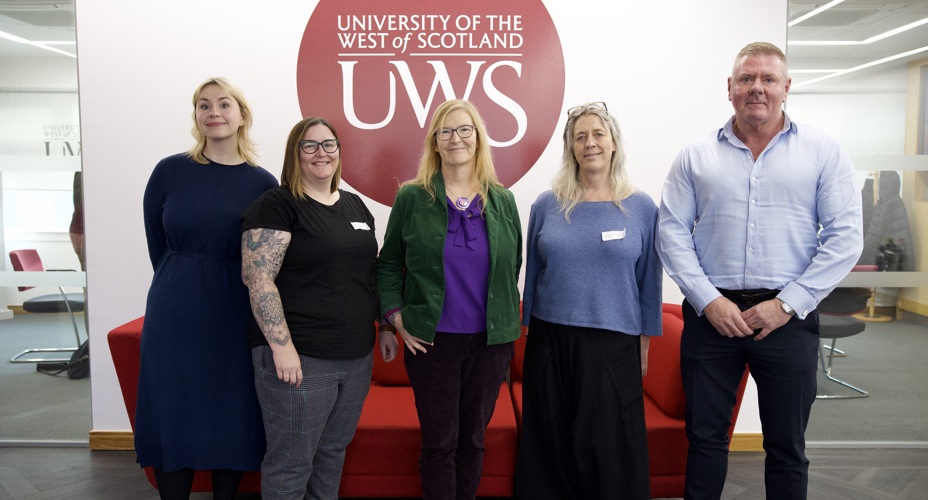Tuesday 03 12 2024

Groundbreaking research undertaken at the University of the West of Scotland into how people use drugs could potentially help prevent overdose and keep people safe.
The research, undertaken by Professor Aileen O’Gorman, Dr Laura Roe and Dr Karen Dunleavy, highlights the range of drugs available used by people at risk of overdose and drug-related death.
In 2021, the Scottish Parliament declared drug-related deaths to be a public health emergency. Polydrug use included heroin, alcohol, powder and crack cocaine, benzodiazepines, cannabis and other drugs. As well as polydrug use, the research found that people used different methods to take drugs (polymethod), including smoking with foil and with pipes, injecting, snorting and swallowing drugs.
Decisions on which drug to take and how to take them depended on the desired effect (e.g. injecting cocaine and then smoking heroin afterwards to soften their comedown) or because they want to avoid abscesses and infections from injecting or respiratory problems from smoking.
These findings have implications for how services can be delivered to people at risk of overdose, as most policy and services are directed towards people who inject drugs. The research suggests there is a need to diversity services, to provide equipment and spaces for drug smoking and inhalation, and to monitor the health of people at risk of overdose to keep them safeProfessor Aileen O’Gorman, UWS
Drug-related deaths are a key focus of the research and education undertaken at UWS Centre for Social, Health and Environmental Research (SHEIR) led by Professor Aileen O’Gorman and the Contemporary Drug & Alcohol Studies (CDAS) programme led by Dr April Shaw.
The research feeds into the United Nations’ Sustainable Development Goals (SDGs), specifically SDG 3: Good Health and Well-being.
The results were shared on Thursday 28 November at the Harm Reduction Futures meeting at UWS’ Paisley campus.
The event was attended by around 80 participants working in drug services, public health, and drug policy and people with lived experience of drug use.
Participants also heard presentations from innovative harm reduction practices such as at the Safe Inhalation Pipes project in Bristol, Porto’s Drug Consumption Room, and the ‘Spike on a bike’ project in Wales.